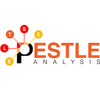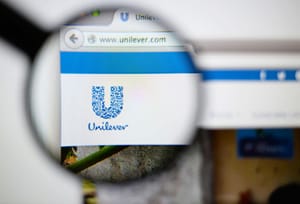This PESTLE analysis of Unilever examines complications the company faces and external factors the world’s largest consumer goods corporation must abide by.
Unilever is a transnational consumer company with products available in over 190 countries with over 400 brands, including Dove, Magnum, Sunsilk, Rexona and many others. In 2012, it was deemed the world’s largest consumer goods corporation.
As a firm with strong international ties, it means they must abide by many laws. They have consumers all over the world and must develop products to meet their orders — even if said demands are waning.
This PESTLE analysis examines complications the company faces and the many external factors Unilever must abide by.
Political factors: European and American laws
Unilever is subject to the regulatory restrictions and guidelines pronounced by the European Commission and the Food and Drug Administration in the United States of America. If they were unable to comply, the company would face legal issues — civil and criminal — and risk fines. It could go so far that those in charge could be imprisoned.
The firm is also liable to all local and regional laws (within Europe) and any global rules set in each country the company’s products are distributed in. These countries include India, South Africa, Russia, China, and several others.
Restrictions regarding imports, exports, or trade laws could hinder the success of Unilever going forward.
Economic factors: Competition is ready
The state of the economy means consumers are less likely to buy expensive products. Cheaper, quality goods are in demand. Companies are rising to compete against Unilever in the EU, particularly in locations like France.
Consumers directly affect the products Unilever supplies. If the products aren’t in demand, Unilever’s cash flow and profits will be negatively affected. Luckily, since Unilever is in various markets if one suffers, another one may prosper.
Unfortunately, that means they’re at the mercy of inflation and consumer whims.
Social factors: Heavy emphasis on image
With so many brands, Unilever has decided to focus on developing a strong reputation. They emphasize issues related to social and environmental factors.
Considering many of Unilever’s products focus on personal care and well-being, the company expresses a strong desire to help people feel and look good, while also living the life they deserve. Even their marketing, particularly with Dove, focuses on helping women feel their best from the inside out.
Technological factors: Automation is key
Unilever is consistently producing new products and selling them online in their respective brand’s locations. The company emphasizes developing its digital marketing and selling methods.
Unilever also has a higher level of automation, especially compared to its competitors; allowing to supply products to store locations quickly. Otherwise, they may see negative cash flow, profit, or a hit to their reputation that they’ve spent so much time and funds on.
Legal factors: It never ends
As a consumer goods company, Unilever is subjected to many laws and legalities. They own over 400 brands in food, health, personal care and several other industries.
Each brand and location of stores are subject to follow copyright, product safety, laws regarding health and safety of employees, and taxes — international and regional.
Environmental factors: A friend to the Earth
Unilever promotes sustainable and renewable resources. Their products are designed to be safe for consumers in every location they distribute. The materials are eco-friendly, from packaging to design.
They want to be seen as an environmentally friendly organization and have worked for nearly the last decade to do so.
In conclusion…
Unilever abides by many laws and regulations from countries all over the globe. They are big on positive image, helping consumers live better lives, and meeting demands for products.
However, consumers are on the lookout for cheaper products, and the competition knows.
Additionally, Unilever dedicates resources to being eco-friendly and utilizes their power to adapt to automated technology so they can send products out faster than the competition.


